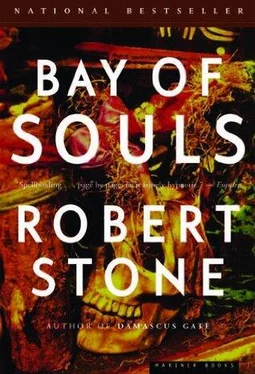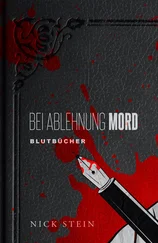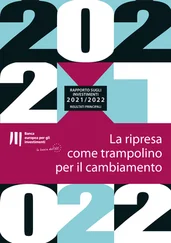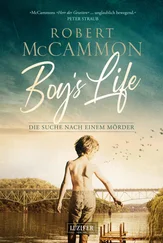While Roger read the island's offshore charts, Michael put on the lower part of his wetsuit over his shorts. They were large, top and bottom. He would have to be careful to get the air out of the suit before going down. Otherwise it might mean shooting to the surface on the way up, filling his lungs with his own death's blood.
Hippolyte spoke up. " La lune! Regardez! "
And there she was, a warp short of full, risen over the Morne. It lit up the bay far more effectively than the old town's unsteady municipal flickerings.
"Take the glasses and have a look around," Roger told Michael. "See if we have any privacy."
Michael scanned the horizon line. The binoculars were fancy strap-on navy night-vision items that turned the dark seascape into a digital optic entertainment. No vessels appeared, no one. Dead ahead, the edge of ocean was broken by two tangled shapes, mangrove cays whose leaves, weirdly tinted in the night glasses, shuddered on the wind.
"Nothing."
Roger and Hippolyte were talking earnestly in Creole, Hippolyte pointing from the cays to the hulk of the mountain.
"He thinks if we follow the reef from Sauvequipeut toward Haut Morne we'll go over it."
"How can he tell in the dark?" Michael asked.
"There should be an oil slick when we get there. And it's not as dark to him as it is to you. He's a shrimper."
"A shrimper?"
"He knows the bottom very well. It's his house. He's counting off the little mangrove islands," Roger told Michael. He himself opened the throttle and they chugged along at a deliberate speed. After a few minutes Hippolyte asked for a cigarette. He took it and leaned forward to let Roger light it for him.
"He figures distance by smokes," Roger told Michael.
They followed the reef line, Hippolyte keeping the field glasses focused on the two mangrove cays across a spur of reef. In a while, he requested another cigarette. The swell increased. Finally he tossed the stub of his Marlboro overboard and said, " C'est là. "
"Oop!" Roger quickly came about.
He held the bow to the wind with one arm. Hippolyte and Michael hurried to the port rail. Hippolyte leaned down with the viewing glass he used for spotting sponges, a four-sided wooden box with a window at the end. Roger peered into the box with the night glasses. He muttered something and passed them to Michael.
They were over the wall. Using the binoculars and Hippolyte's contraption it was possible to see the higher ledges, patterns of elkhorn and tube coral descending into red and gray murk. A few gas cans and fan belts littered the highest shelf.
"What's he seeing?" Michael asked.
Hippolyte was looking across the reef toward the mountain range.
" C'est là, " he told them. " Voilà isir. Ici. "
They tried using the hand light in his viewing box but saw no more at first than the outline of their own anxious faces.
Michael took the box and, with Roger and Hippolyte holding him, had a long look down the slope. After a minute or so he thought he saw a faint green glow. In a little time, the glow doubled. Trick of the eye? The points shifted, fluttered, blinked in his bleary vision, but they were light and they were constant. There was a little red light as well.
"I think it might be an instrument panel. It's deep."
"Well," Roger said after a moment, "let's get it, brother."
They went below to a cramped cabin with a nonfunctioning compressor and some empty tank racks. Michael fixed a regulator to the tank and tested it.
"So what's down there, Roger?"
Roger had a photograph of an airplane. He showed it to Michael under a cabin light.
"This is a Cessna 185. Two seats up front, a single seat behind it. Behind the single seat is a four-and-a-half-by-five storage compartment. It contains two watertight cases weighing about ten pounds each. Also a metal tube of drawings and paintings. Get the paintings if you can. But the two cases are the thing."
"I thought it was always packaged to float?"
"What can I say?" Roger asked him. "Rash optimism."
Michael took his fins and went on deck. Roger came up behind him.
"I don't know your temperament, Mike. You might find some upsetting things that you should just, ah, leave alone."
"Like what?"
"Like the pilot."
"Oh."
"He was a very determined guy," Roger explained. "Nice fella."
"You knew him?"
"Oh," Roger said, "I knew them all to talk to. Some of them were charming."
Just then, at the far end of the bay, a high-speed helicopter made the crossing from Point aux Riches to Mont Cesar. It moved in a circuit of whirling lights.
"Shit," Michael said. The helicopter probably indicated the American presence in one of its aspects.
Roger took him by the arm. "Wear your salutation. Wear it for Erzule. And for Lara." He tied the red band around Michael's forehead over the mask.
Michael was looking at the helicopter.
"Go, Michael," Roger said. "Never mind them. Go. Go." He put his palm against the red band. " Ave Maria Purísima. Go, for Christ's sake."
Michael, to his own considerable surprise, made the sign of the cross and fell backward into the darkness.
He had taken a hand light. For a while he treaded water, squeezing air from his oversized buoyancy compensator. Then he let himself slowly descend, sweeping the top of the wall with his light. There, it was eel grass and fans, litter, beer cans and wrenches, bristling with spiny urchins. There was a good deal of chalk, dead elkhorn. Hardly any fish, a few tangs. More or less what he had expected.
The little fever, the sick sting of fear in the gullet he had been breathing through all day, eased a little as he went down. It helped, performing the nice necessities of diving, to become a different animal in a different element. The wonder of it appeased his imagination.
He felt himself landing lightly on the next ledge; his fins touched, then his knees. He disengaged, turned over on his back and twisted upright. Brain coral here and a kerosene can. He checked his depth gauge. Eight meters, twenty-six feet.
Crossing the ledge over the elkhorn, an admiring barracuda came to share the dive, then, quicker than the eye, a second appeared in the beam of his light. When he was on the wall, descending again, they followed him down in a slow spiral.
Equalizing, he felt as though the pressure against his body were the weight of darkness itself. Dark possibility above and below, everywhere beyond the little circle of his light. But close at hand, the wall was richer than he had imagined. Colors came forward almost violently, flashed into life within the vagrant cordon he spread. Star coral hung on the underledges; there were caves where baby sponges grew on a gleaming black carpet, like anemones in a lava field. Black coral, something rare. Probing farther along, he saw that a lot of it had been chipped away; the claw of a lost hammer glinted among the fans.
Attended by the 'cudas and a cautious trumpet fish, he moved out from the face and tried to accelerate a little, to lose more of the air in the big BC. He passed beautiful terraces of brain coral. When he had first seen brain, diving years before, it had stirred his faith, the form of it, suggesting in that deep liquid world the mind itself, the mind of things. A little savor of that time was with him when he came to the field of ruined coral. Below him was a trail of hacked and severed creatures, bare soiled sand and broken rock. His light struck a rainbow. Following it with his beam, he saw that the rainbow was rising in a broad column toward the surface. For some reason, the prismatic column was crowded with fish. There were more than he had seen so far: parrotfish, wrasse, tangs and, in great numbers, angelfish. For some reason the fish were circling, remaining within the colored circumference. He turned the beam down and saw that the numbers of fish increased with depth. Paddling away from the destroyed terrace, he followed the rainbow down.
Читать дальше












